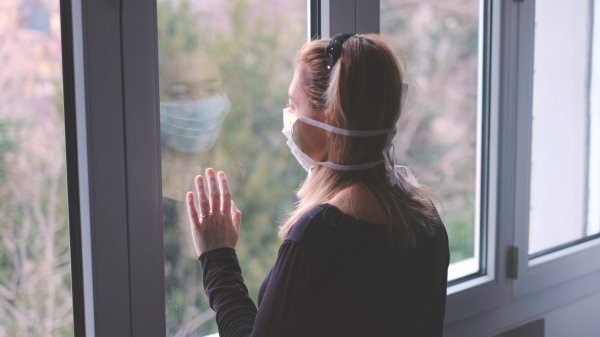
Content Warning: This article contains discussion of violence and abuse.
The period of isolation has taken a massive toll on our partnerships, friendships and family relationships. It comes as no surprise that the government has allocated an extra $150 million towards domestic, family and sexual violence support. However, while google searches about domestic violence have increased by 75% since the pandemic began, actual reporting of these crimes does not match up to predicted rates.
Last week, I attended an online lecture entitled Domestic Abuse and COVID-19 hosted Jess Hill, author of See What You Made Me Do. Jess discussed the complexities and increasing severity of physical, emotional, sexual and financial abuse during this time. There are so many factors brought about by isolation which exacerbate existing household violence and trigger it. Financial strain, greater alcohol consumption and deteriorating mental health can all aggravate unstable households. However, a crisis like this pandemic also creates an environment where an abuser can manipulate their victim using coercive control. This involves setting up controlling situations which prevent partners and family members from leaving an abusive situation, which isn’t necessarily violent but can quickly escalate to it. It may involve things like telling victims false information about the virus, confining victims to certain areas of the home, guilt-tripping the victim about leaving their home and using the virus to excuse unacceptable behaviour.
It can also be hard to identify what can be classed as abusive behaviour. Jess pointed out that coercive control is often conducted unconsciously, with some abusers not understanding that their behaviour is abusive. As there is no clear-cut example of an abuser, it can be incredibly difficult for a victim to work out if they are in danger. That’s why if you believe yourself, a friend or family member are in an abusive situation, it is crucial to contact organisations that can deliver information and support.
People may feel judged and vulnerable contacting support services and as a result avoid using them altogether. So, I rang up 1800 RESPECT to learn what to expect when calling a support helpline in the hope of making it a little less daunting.
- Firstly, you will be asked if you are safe to talk and how you’re feeling
- You will be asked to describe your situation to the extent you are comfortable with and encouraged to take your time
- The counsellor will never interrupt your story. When you ask a question, they always say that they are hearing you and praise you on your ability to deal with the situation, before offering support
- The counsellor gives advice on identifying different types of domestic abuse, offers a variety of support methods asking which of them do you think is most beneficial to your situation
- The counsellor will inform you of several resources that are relevant to you
- The session will end by the counsellor asking if you would like to make a file for yourself, so that should you ever need to call again, a new speaker can be familiar with your situation (this is totally optional and can also be made under a fake name)
I found the whole experience of sharing my thoughts and emotions with a total stranger so therapeutic, knowing that there was no judgement or criticism. Although I wasn’t using the helpline for personal circumstances, it was a huge relief to express myself and no longer feel a burden of keeping things bottled up.
However, it’s not so easy to phone up a helpline if you are confined to a space with an abuser. All the following services are free, confidential, operate on a 24/7 basis and use a quick escape system where you can click a button which automatically sends you to a different website should you need it.
- 1800 RESPECT’s 24/7 online chat service, for people of all ages, genders, abilities and languages, you can ask trained professionals any questions you may have about your situation
- Domestic Violence Resource Centre Victoria’s ‘What’s Okay at Home’, an interactive page aimed at young people dealing with abusive situations, there are so many activities which enable young people to come to terms with what’s happening, express their emotions and learn how to get help
- MensLine Australia, a service available for men who may be committing acts of domestic violence and need to seek help. It is also possible to use this helpline as a partner, family member or friend of someone suspected of being a perpetrator of abuse
- DAISY, an app established by 1800 RESPECT to help victims locate support services near them and you can visit websites and counselling through it so they won’t appear in your browser history. You can also attach contacts to the app such as your best friend or parents that can be contacted instantly via a pre-written text message if you are ever in danger
Of course, not everyone in an abusive situation is ready to reach out to support services, and that’s completely okay. The responsibility of seeking help always falls on the shoulders of the victim, which is an additional burden for an already fragile person. The absolute most important things are taking small steps towards getting help, and taking care of yourself as best you can.

